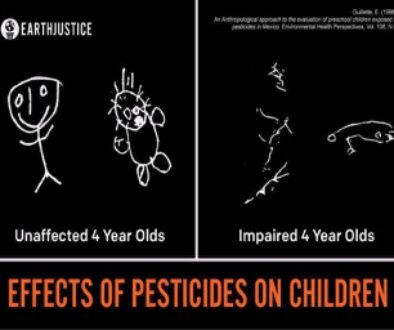NC Pesticide Board Meeting – January 8, 2019
By Demarcus Andrews, Policy Advocate
The NC Pesticide Board met on January 8, 2019. The first part of the meeting focused on whether or not Allen Scarborough (a representative of the agricultural chemical industry) posed a potential “conflict of interest.” It was stated that he represents Bayer Crop Science, which mass produces many pesticides. With this, he could potentially pose a conflict of interest by serving on the NC Pesticide Board. Ultimately, the Board decided that even though Scarborough represents the industry they intend to regulate, his potential conflict of interest wasn’t great enough to prevent him from serving.
Next, Renee Woody (Environmental Programs Manager, NCDA) requested $60,000 for the Plastic Pesticide Container Recycling Program for 2019. This program provides funds for counties to continue and expand their plastic recycling programs. The program has proven to be an effective mechanism that encourages safe ways to recycle pesticides containers and create useful products such as agriculture drain pipe. While this is a great accomplishment, the program does have room for enhancement and expansion. Most notably, it was stated that only 35% of the containers purchased in NC are recycled through this program.
The final portion of the meeting was dedicated to settle agreements. The first two cases dealt with pesticide drift. In both cases, the defendant applied a pesticide that drifted onto a neighboring yard, killing the vegetation. The final two cases illustrated a broken system. More specifically, it was discovered that a small pesticide business was operating for the past two years without the proper licenses to do so. This case revealed the need for an improved system that effectively tracks and monitors expiration dates for pesticide licenses. The final case involved Southern Agriculture Insecticides, Inc. This company distributes pesticides, fertilizers and other agricultural products. They sold a Restricted Use Pesticide (RUP) to a non-commercial applicator. Details that were disclosed included that the applicator called the State Department of Agriculture to inform them of his recent purchase, and, that he may have purchased a product not allowed for residential use. Luckily, the consumer read the labeling on the product and made the right decision to call the NC Department of Agriculture. This case begs the question, “what happens if the consumer doesn’t make the call?” This illustrates the need for enhanced enforcement mechanisms, to allow only the individuals with the proper licenses the ability to purchase pesticides that are labeled for restricted use.

